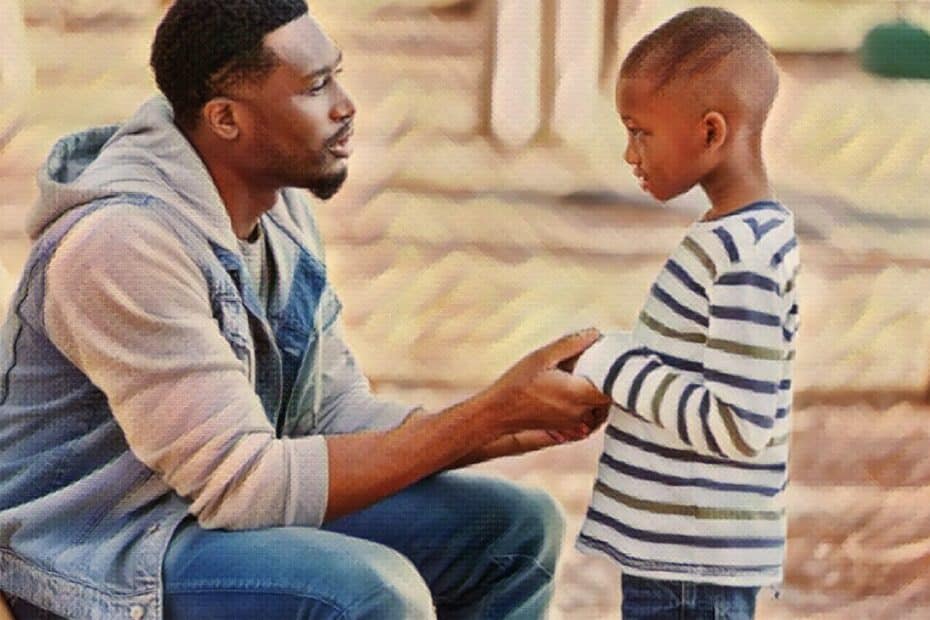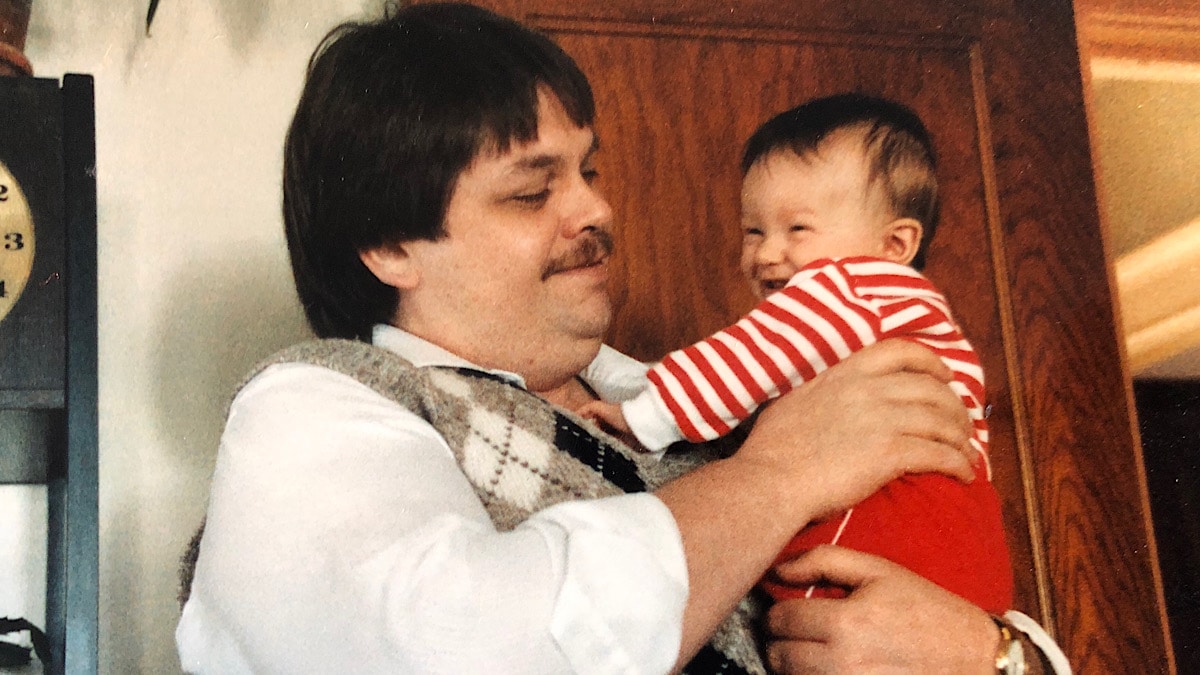Excerpt: 1) “I will always love you.” This is one step above “I love you” and reminds your child that nothing they do can make you love them less…
Click Here to jump right to our list of powerful phrases that will change your parenting!
Introduction: Planning Your Parenting
“It is easier to build up a child than it is to repair an adult.”
Unknown
Learning how to properly educate, inspire, and guide our next generation is one of the most important duties we have as adults who have come before. It is up to us to protect our children from the world and at the same time, prepare them for it. It is our obligation to give them the tools they need to succeed without simultaneously doing the work for them.
It should be our goal to take on the role of being the best teacher they will ever know because it is our class that they will be showing up to more than anyone else’s. And if we proceed without preparing and simply “make it up as we go,” we are bound to miss important lessons and ideas along the way—after all, if we don’t actually sit down and figure out what we want to teach, how will we ever teach what we want?
If you were asked to be a guest teacher at a local classroom, one of the first things you would probably want to know is what you’re supposed to teach. At the very least you would want to know what subjects the students are learning about, what specific topics within those subjects you were supposed to cover, and what systems were in place within the classroom to ensure the information you taught was retained (and order was maintained).
If you’re not prepared and are without a class plan, a curriculum, or any idea what-so-ever of what you think they are supposed to know, then they, not you, are the ones who will suffer. The same is true for your children.
You are their guest teacher EVERY DAY, and they are the ones who will suffer if you have no plans in place, no lessons in mind that you want to teach, no disciplinary tactics to follow when they break rules (because they will break rules), and/or no rules in place that are clearly defined.
Think you can wing it?
NEW In The Shop: Don’t Let The Tame Ones Tell You How To Live [Poster]
Why We ♥ It: Some of the best advice I (Matt here) ever got was: don’t take life advice from people who aren’t living a life you want to live and don’t take criticism from people you wouldn’t go to for advice. I created this poster to act as a reminder to listen more closely to our role models and less closely to our critics, trolls, and tamed-comfort-zone-hugger acquaintances. It’s also a perfect gift for the outdoor adventurer, travel enthusiast, or solo explorer (or soon to be). Available in print or digital download. 👇🏼
...Want to advertise your book, product, or service? Send inquiries to matt@movemequotes.com.
I have been teaching martial arts classes since 2004 for children (and adults) of all ages and can certainly teach a martial arts class on the fly—but I ALWAYS teach a better class when I go into it with a plan.
The setback with teaching on the fly is that you won’t be able to immerse yourself in the moment while you teach—you will be forced to plan as you go and your mind will be stuck thinking into the future for the duration of the lesson.
The same is true when you make anything up on the fly. You’ll be constantly projecting yourself (and various situations that come up) into the future to try and figure out how certain things might play out and you’ll be split-minded—reacting rather than responding, and often unclear/ undecided.
The advantage to premeditating rules, lessons, disciplinary measures, values, morals, etc., ahead of time, is that they’re ready—the thinking is done.
When you actually sit down to figure out what the rules are, what the lessons you want to teach are, how you’re going to discipline your children, what values you want to stand for, and what morals you want to instill in your children—you can simply focus on execution and handling the moments that come up with care. The importance of this cannot be understated.
Don’t be too quick to dismiss this post as being just for parents, either. This post is for parents, soon-to-be-parents, not-yet-thinking-about-becoming-a-parent, and not-gonna-be-a-parent people to reflect on alike. Because the same lessons that you would draw on to guide your children are the same lessons that should be guiding you.
Would you want your child to be responsible? Well, how responsible are you? Are you doing the best you can? Would you want your child to be disciplined? How disciplined are you? What strategies do you have in place that keep you doing what you know needs to get done? Would you want your child to be patient and kind? How patient and kind are you? When somebody pisses you off, how do you respond? These are questions worth sitting on.
Finally, think back to your upbringing. What did your parents do well? What do you think they could’ve done better? How can you become the person for others that you wish you had for yourself? Sort through these thoughts and get your lesson plans ready. We’re all students in life and we’re all learning from each other—parents and children alike.
When it comes to our next generation though, let’s all take personal responsibility in influencing them in the best ways we can devise—not on the fly, but according to plan. It’s easier to build up a child than it is to repair an adult.
The List: 20 Powerful Phrases That Will Change Your Parenting Forever
The following list is an excellent example of how strategic planning can help you best raise your children. By paying close attention to word choice and thinking more carefully about how you can empower your phrasing, you’ll completely reshape daily interactions that’ll undoubtedly affect a child’s mental landscape.
Before you dive in, take note that this list was compiled and written by Vincent Phamvan. I originally read it as a thread on twitter and with his permission, am sharing it with you today. I found it incredibly valuable and dense with immediate takeaways that I hope will help you on your journey forward—both as a parent and student of life. Enjoy! ~ Matt
1. “I will always love you.” This is one step above “I love you” and reminds your child that nothing they do can make you love them less.
2. “You’re right to feel that way.” Reassure them they’re right to feel the way they’re feeling. Maybe they shouldn’t be as mad as they are, but they’re right to be mad. It’s great to have them expressing themselves and you want to encourage it.
3. “____ is over in X minutes.” This is giving your child a heads up that things will be changing in a certain amount of time. Reading is over in 10 minutes. Bath time is over in 10 minutes. We’ll be leaving for the stores in 5 minutes.
4. “I would feel the same way.” If your child is sad because her brother lied, don’t say: “You don’t need to feel that way.” Empathize by saying, “I’d feel the same way if I was lied to.” Allow them to feel heard and understood, that’s what they want.
5. “It seems like you are ____” Instead of saying: “I know you’re mad…” or “I know you would love…” Say: “It seems like you’re mad at your sister.” “It seems like you would love going to the mall.” Don’t tell them how to feel, let them share how they feel.
6. “Yes, later.” Saying “yes” instead of “no” keeps things positive. Switch “No, not right now.” For “Yes, we can do that later.” It’s the same message but positive instead of negative.
7. “I need your…” Kids love to be needed, especially by an adult. For kids, it often feels like adults are the only ones that matter. By saying: “I need your help…” “I need your thoughts…” “I need your assistance…” You’re reassuring them they matter and are valuable.
8. “Pause what you’re doing” Often times “stop” can come off as harsh and forceful. Simply switching it with the word “pause” and you’ll get a softer response.
9. Mirroring: Mirroring is simply reflecting and matching what they’re saying using their words. “So you’re thinking I’m the worst Dad in the world, and I hate you, and I’m really, really really, really mean.” “You feel really freaking pissed off at me right now.”
10. “Thank you for remembering…” Any chance you get you should thank your child. If they remember to… Make their bed, thank them. Say “Mrs.” and “Mr.,” thank them. Wash their hands, thank them. Don’t only point out the bad, encourage the good.
Related: 9 Rules for Children from 12 Rules For Life by Jordan Peterson
11. “That’s not okay in this home.” Kids love to say, “Andrew gets to do…” “Chris is allowed to do…” “Jenny’s mom lets her eat…” Without saying they’re wrong, you can say “but that’s not okay in this home.” Then explain why it’s not okay so that they understand.
12. “I’m on your side.” Sometimes kids will feel like their parents are against them. You can avoid this by always reminding them that you’re on their team. It’s not mom and dad vs kids, it’s our family vs the world.
13. “What are you going to do about that?” This is one of my favorites. Every time a child brings you a problem, ask them what they’re going to do about it. It’s their problem, don’t take it on as your own. This is teaching them personal responsibility.
14. “That’s brilliant!” Tell your kids when they have a good idea. I promise you they don’t get called “brilliant” often so doing so will make their day.
15. “I feel like saying no. Why should I say yes?” Instead of giving them a straight “no” give them the chance to explain why you should say “yes.” This opens the door for them to think about… Possible reasons. Why this matters. How important this is.
16. “I didn’t know you could…” Your kids are constantly learning new things. This phrase puts a twist on just saying “good job.” It comes off as being extremely impressed and satisfied.
17. “Excellent try!” Many people in life are afraid to try new things. This probably started in childhood by being told it’s not okay to fail. As a parent, you should be cheering them on any time they try new things.
18. “I prioritize our relationship.” Remind your child that you value their relationship more than… School; Money; Sports; Movies; Your phone; Being on time—And that you won’t sacrifice it for anything.
19. “Would you like ___ or ___?” As often as possible, give your children options. “Red toothbrush or blue?” “Yogurt or eggs for breakfast?” This gives them a voice and the allusion of choice.
20. “All feelings are okay.” In our world, people often tell their kids, “Stop acting like…” “Don’t be hurt by…” “That wasn’t that bad…” And their child doesn’t get a chance to feel. All feelings are okay, it’s how we act on them that’s important.
Read Next:
NEW In The Shop: Don’t Let The Tame Ones Tell You How To Live [Poster]
Why We ♥ It: Some of the best advice I (Matt here) ever got was: don’t take life advice from people who aren’t living a life you want to live and don’t take criticism from people you wouldn’t go to for advice. I created this poster to act as a reminder to listen more closely to our role models and less closely to our critics, trolls, and tamed-comfort-zone-hugger acquaintances. It’s also a perfect gift for the outdoor adventurer, travel enthusiast, or solo explorer (or soon to be). Available in print or digital download. 👇🏼
...Want to advertise your book, product, or service? Send inquiries to matt@movemequotes.com.

Written by Matt Hogan
Founder of MoveMe Quotes. On a mission to help busy people do inner work—for better mental health; for healing; for personal growth. Find me on Twitter / IG / Medium. I also share daily insights here. 🌱
It has taken me 1,000’s of hours to build this free library for you. If it has helped you, you can support my continued effort here. ☕️


![To My Daughter. [Excerpt]](https://movemequotes.com/wp-content/uploads/2023/06/Daughter.jpeg)



